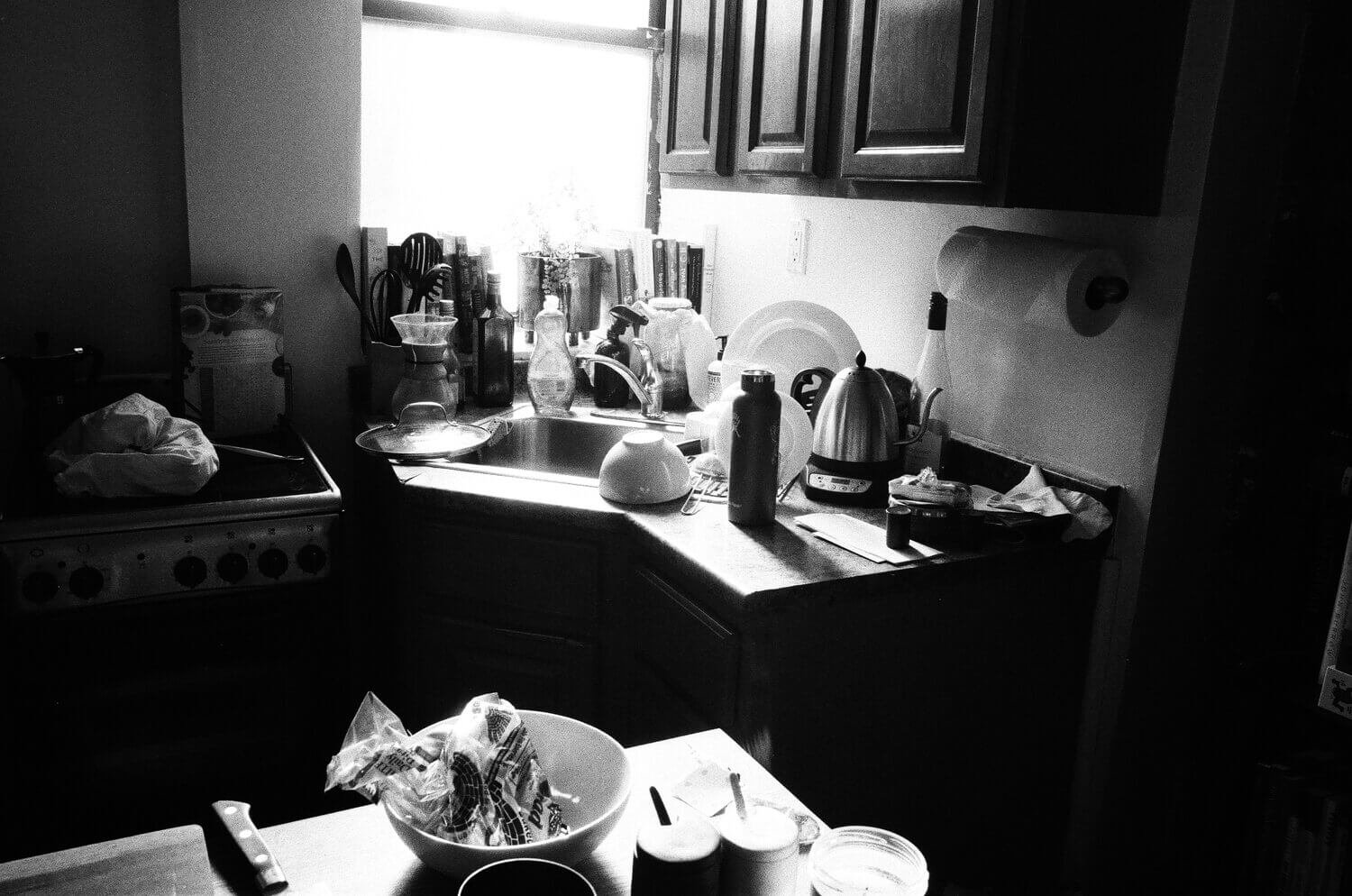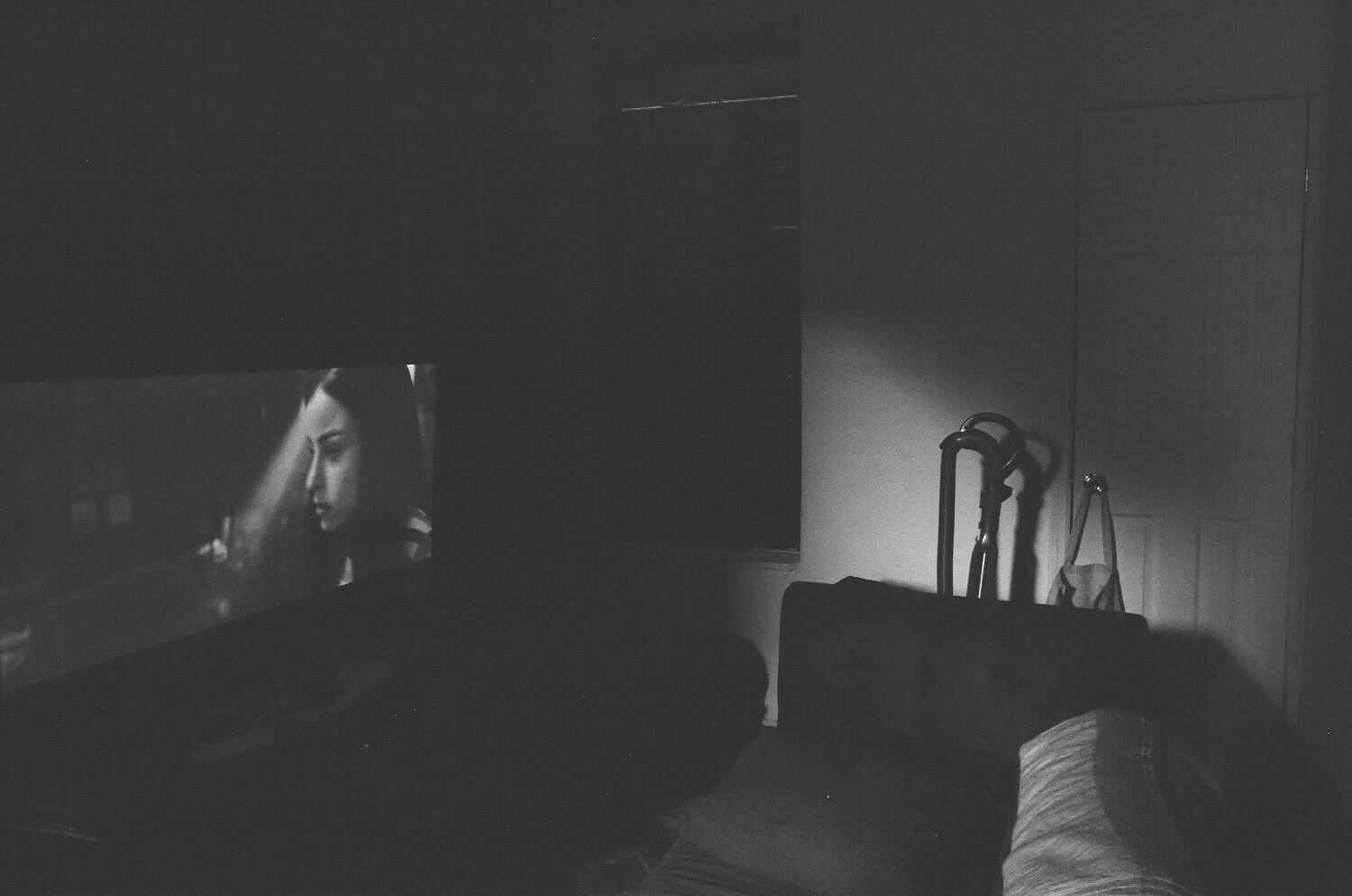Gaol
by Adin Dobkin
At 2 or 3, I finish work for the day. On weekends, it is sooner.
Once done, I think about making dinner. Turkish Manti or an onion galette: a dish that will take a few hours, cart me closer to that day’s end. I will eat at 5 or 5:30 and with that, tip day to night. Then, I’ll go back into my room, read (a desire that fortunately hasn’t left me), and fall asleep if I can manage it.
I set aside the thought. I’m missing ground lamb or scallions enough to coat the pie crust’s surface. Instead, I’ll satisfy myself with rice and beans or order delivery from a Punjabi place down the street, who never fails to provide a soda can with my meal that goes dutifully unconsumed. One that leaves sweat marks on the wood cutting board, temporary tree rings to mark the next morning.
The hours need to be filled somehow.
I don’t like to read so early—I’ll pass out on my bed and spend hours looking at the ceiling. I don’t like how my tastes have changed in the past few weeks. Recent novels don’t have any urgency. This is partly my fault, I believe, since old ones don’t hold my interest either. I’ve instead picked up heavy books by academics who have something to say about their work: an economic history of the Bering Strait, a theoretical physicist’s memoir on the years he spent discovering a new form of matter. I’ll lull myself with their figures.
In the early hours before reading, I turn on the TV and choose a horror movie to pass the time.
Those I’ve meant to watch or re-watch go by quickly: Sleepy Hollow, Get Out, Ma, Hereditary, Silence of the Lambs. I move onto dramas I had similar aspirations for, the movies I have decided I’m supposed to see (The Pianist, Lady Bird, Good Time, A Ghost Story, etc.). An hour in I turn them off. I appreciate the movies, but for the moment, that is all I find, which isn’t enough.
The living room has scant natural light, except for a short interval in the afternoon’s gut. It brushes across my face and lands at the far closet before the room goes dark again.
I grub for those movies not on front-page carousels. Annabelle Comes Home, The Conjuring 2, The Predator, Insidious 3. Late stage sequels are well represented as each afternoon is unfailingly renewed. I lie down on the couch and let them fill the room, the grumble of sub-sounds, the narrative beats hot-glued along their spines.
I’ve always watched them. In and after college, I would find one or two for hungover Sunday mornings and laze about on the couch, only leaving to pick up a greasy lunch before returning to the living room for the second ticket.
I felt no self-loathing then as I do now. I sit on the toilet seat and watch the water flow into the bathtub. I’ve decided it’s time to bathe, i.e. the moment I’ve decided to remain indoors for the rest of the day.
The movies then didn’t leave any film. They wouldn’t sit with me at night, except in odd circumstances (for instance, The Haunting of Hill House’s expression of grief — and the fact I watched it in my bedroom, not in a distinct living area, tainted my sleeping space for a few days, though not so much that I stayed awake all night).
In more recent weeks, the movies have hung about. I don’t know whether to cite this as a function of the quantity consumed, saturating those hours when I’m not working, or whether they’ve instead been invited through some other fissure. I’m leaning toward the latter.
The other night, I wake up a little after midnight. My eyes cross the bedroom, to the wall where my human-sized leaning desk is placed. In its right-triangle absence is a dark, flowing dress. I stare, confident that after a second or two, the dress and the woman it swathes will fade as my eyes became accustomed to the moonlights. It takes fifteen or twenty seconds, more than I expect, long enough that I could cross the space between us and touch her if I want to.
I start after my bedroom door creaks open. I understand, then and now, that air currents from a cracked bathroom window are to blame. I still watch the door until I fall back asleep. If the door seems liable to clink again against its frame, I switch on my light and shut it, placing a stout thesaurus at its foot. Or I grit my teeth and close the cabinets above my sink, confident that once I do so, I’ll find someone else.
I don’t stop watching on those afternoons.
It happens when I’m reading a scary book, too. Rather than leave it behind to face my room, I’ll instead keep reading for as long as I can stomach those sagging tendons. I’m not sure whether a positive denouement’s odds—a rosy 50/50—carry me through those pages, or whether abject horror, obvious horror, is preferable to its mere potential, its suggestion: a shut closet door, shadows brushing against a bedroom wall.
I think walking into the hallway, confronting it, will do away with the feeling, but it doesn’t. Instead, I only step further. I wait for a second, open the closet door, walk into it. I turn around and only see myself reflected in the opposite corner.
Adin Dobkin is a writer and journalist in New York City. His book about the 1919 Tour de France is forthcoming from Little A. His Cities: Skylines quarantine save file has reached the size of a colossal city.





